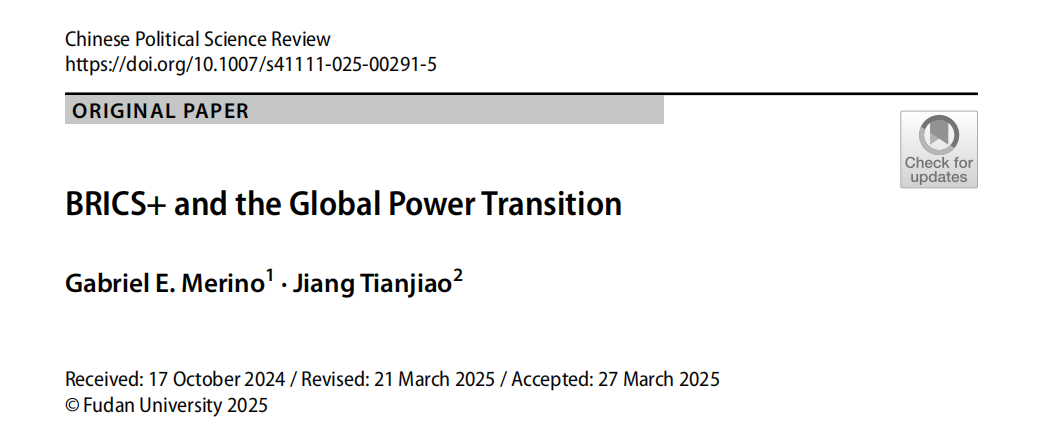Author:Gabriel Esteban Merino,Jiang Tianjiao Release date:2025-04-21 14:20:58Source:Chinese Political Science Review

Abstract
This paper examines the “nature” and significance of BRICS within the geopolitical and historical-spatial transition of the world system, focusing on its enlargement since September 2023. The main argument is that BRICS represent the rise and political 'insubordination' of semi-periphery countries often referred to as developing nations-driven by middle and regional powers of continental scale operating within a global scenario. This dynamic is expressing a profound transformation of the world system and reflecting the emergence of new social forces that articulate anew 'historical bloc’. Also, the expansion of BRICS into BRICS+ extends this process to other regions of the Global South, with significant political and geopolitical implications. Some of these implications include: (1) a rebalancing of power in key geopolitical regions such as the Middle East and Southeast Asia; (2)a questioning and crisis of the traditional center-periphery dynamic (Global North-Global South) within the capitalist world system centered in the West; and (3)the consolidation of large-scale cooperative partnerships across Eurasia. By democratizing the world order and encouraging the emergence of alternative structures, BRICS is increasingly positioning itself as a constructive force for promoting world economic growth and improving global governance. This study has the purpose to contribute to the ongoing debates on power transition and emerging powers, the crisis of global order, the increasing relevance of BRICS+ within the Global South, and the internal challenges and external risks facing this multilateral space in an emerging world.
Key Words
BRICS+, Global south, Center-periphery, Geopolitics, Multipolarity, Cooperation
Link for Full Paper
https://link.springer.com/article/10.1007/s41111-025-00291-5
Authors
Gabriel E. Merino
Department of Geography / Institute for Research in Humanities and Social Sciences(IdlHCS), National Council for Scientific and Technical Research (CONICET). Co-coordinator of the CLACSO working group “China and the map of world power”. Director of the Research and Development project: “Historical-spatial transition of the world system and Latin America”, based at CIGIdIHCS-UNLP. Coordinator of the Eurasian Department of Institute of International Relations (UNLP).
Jiang Tianjiao
Associate professor of Development Institute, Fudan University. Associate Director of Center for BRICS Studies, Fudan University (Corresponding Author)